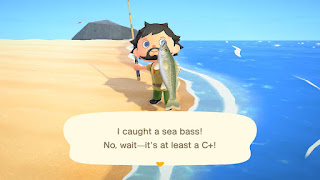On Twitch, we all begin in the exact same way. No matter who we are, our channels in their first moments will have zero followers, a stock profile picture, and a bunch of ambitions behind the scenes. It’s only after we’ve spent some time that the content begins to really come into its own. However, even once that channel has been fully set up, many of us have a very hard time populating it with content. Like any author faced with a blank page, or a painter looking at a white canvas, once there are no more excuses in the way, and we’re right up against that moment of creation, the real battle begins. Our minds fight back against our ambitions, and try to prevent us from creating what we really care about. Every time we want to go live, we’re essentially locked in a poker game against ourselves. And in this entry, I’ll help you to stream with the hand you’re dealt.
➢ KNOW WHEN TO HOLD ‘EM
When you play poker, you’re given a set of cards, called your hand. The cards are of course randomly distributed, so you’re hoping that the hand you get will have a good combination, which is more likely to win if placed up against someone else’s hand. Once everyone around the table has their cards, the players begin betting based on how likely they think they are to win. Finally, when all the rounds of betting are complete, everyone shows what they have. So the best hand is always the winner, right? It’s essentially a game of chance, like a slot machine, but with more frequent betting… right?
It may seem that way from the outside, but anyone who knows poker knows that it isn’t the hand that dictates whether you win or lose most of the time. What really dominates most outcomes in poker is the betting. By betting strategically at different times, players are trying to trick the others at the table into thinking they have different cards than they really do. And in doing so, this often causes players to drop out, or fold, until the next hand is dealt. Therefore, by playing a poor hand in a smart way, a really skilled poker player can often beat someone who’s holding much better cards. As Matt Damon’s character says in Rounders, “Put a guy like me in that game, cards don't even matter. I'll play it blind.” On Twitch, many people lament their circumstances, whether it’s their time, money, skill, or a thousand other possible factors. And like many poker players with a bad hand, streamers often get dejected by their less-than-ideal circumstances and ‘fold,’ or give up, too early.
Unlike in the wild west, none of the players around
this table will shoot you for winning too many hands.
When you stream on Twitch, the other players around the metaphorical poker table are all trying to knock you out of the game. But those other players aren’t actual people. Each one is another of your internal enemies- those parts of yourself which regularly hold you back. One might be the voice that tells you you aren’t good enough, and shouldn’t be putting yourself out there. Another may be your busy schedule. The wallet always has a seat at the table, and your lack of experience is another regular. As long as you stay on Twitch, you will always be seated at this poker table, playing against your own set of personal opponents. Every day you decide to go live on your channel, another hand is dealt. Maybe your computer is giving you issues today, or something unexpected came up, and your hand isn’t looking so good. Maybe that self-consciousness guy over on the other side of the table is betting pretty heavily, and it’s tough to believe he doesn’t have good cards. All of a sudden, you're not feeling so good about going live. But thankfully, there’s one key difference between Twitch streaming and poker: you’re always holding the best hand of the bunch. You just don’t always know it. As long as you stay in the game, and stop yourself from folding long enough to go live, you’ll always beat those other players inside your head.
➢ TAKE CARE OF YOURSELF
As you continue through this neverending poker game we call streaming, your opponents will sometimes learn new strategies. These occur when outside influences enter your life. Sometimes by seeing too much of what other streamers are doing, you’ll begin second-guessing your own channel. You may be getting busier and busier at work, and can’t seem to catch up in your schedule. Or certain toxic relationships may prevent you from seeing how great you really are. All of a sudden, the next time you want to go live, those other players at the table seem to be betting in a really aggressive way, and it’s difficult to bring yourself to stream.
That’s why it’s important to take care of yourself, and cultivate good habits for your daily life. In entries like Stream With Strategic Ignorance, I helped you to limit harmful comparisons to other streamers, while in other entries like Stream With No Complaints, I helped you to remove bad influences. Some things around us may be able to be changed and some may not, but it’s always possible to change our outlook about the things that happen to us, and that’s usually enough. Just stay at the table, stay in the game each day, and you’ll eventually get better and better at recognizing most problems for the illusions they really are. When you stream with the hand you’re dealt for long enough, nothing can stop you from achieving your goals.












